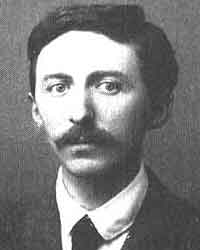 | Forster, in Aspects of the Novel (1927): the novelist has difficulties enough, and today we shall examine two of his devices for solving them--instinctive devices...the first device is the use of different kinds of characters. The second is connected with the point of view.
I. We may divide characters into flat and round. Flat characters were called "humours" in the seventeenth century, and are sometimes called types, and sometimes caricatures. In their purest form, they are constructed round a single idea or quality; when there is more than one factor in them, we get the beginning of the curve towards the round....
....the test of a round character is whether it is capable of surprising in a convincing way. If it never surprises, it is flat. It if does not convince, it is a flat pretending to be round. It has the incalculability of life about it....All of us, even the sophisticated, yearn for permanence, and to the unsophisticated permanence is the chief excuse for a work of rt. We all want books to endure, to be refuges, and their inhabitants to be always the same, and flat characters tend to justify themselves on this account." --Remember essentialism (individuals are members of invariant classes) vs.
population thinking (individuals vary in
substantial and important ways)?) |



